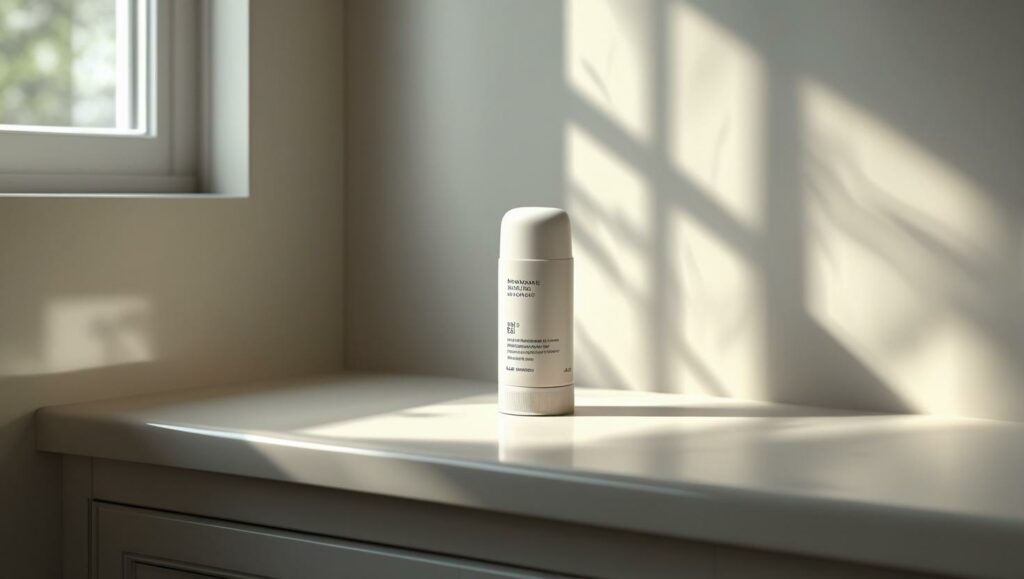Whether you’re packing for a flight or just restocking your bathroom cabinet, **deodorant** is one of those everyday essentials we often take for granted. But recently, more people are starting to ask important questions: Is stick deodorant allowed on airplanes? And perhaps more importantly, are all deodorants safe for your skin and overall health?
Let’s unpack both the travel regulations and the hidden concerns behind common deodorant products so you can make informed, safe choices.
Is Stick Deodorant Allowed on Planes?
Good news: stick deodorant is allowed in both carry-on and checked baggage. According to the TSA (Transportation Security Administration), solid or stick deodorants are not considered liquids, gels, or aerosols, so they are not subject to the 3.4-ounce (100 mL) liquid limit for carry-on items.
What does that mean practically? If you’re traveling by air, you can pack your regular stick deodorant without needing to place it in a clear plastic bag with your other liquids.
However, other types of deodorants have different rules:
- Gel or roll-on deodorants must follow the TSA liquid rule — they must be 3.4 oz (100 mL) or less and fit in your quart-sized bag.
- Aerosol deodorants are allowed but must also be under the 3.4 oz limit if placed in carry-on luggage.
If you’re traveling internationally, it’s always a good idea to double-check the security rules of the destination country. But generally speaking, stick deodorant is a safe bet for air travel.
Are All Deodorants Safe?
This is where things get a little more complicated. While most commercial deodorants are approved for consumer use, not all of them are equally safe or suitable for every person. The safety of a deodorant depends largely on its ingredients, how often it’s used, and your skin’s sensitivity.
Let’s look at some of the most talked-about ingredients in today’s deodorants — and what you should know before applying them to your skin daily.
Aluminum Compounds
Many traditional antiperspirants use aluminum-based compounds like **aluminum chlorohydrate** or **aluminum zirconium** to block sweat glands and reduce perspiration. While effective, these compounds have raised concerns about potential links to breast cancer, Alzheimer’s disease, and hormone disruption.
Although research is still inconclusive and regulatory bodies like the FDA and WHO consider these products safe in low concentrations, many consumers are choosing to avoid them just to be cautious. As a result, the demand for aluminum-free deodorants has soared in recent years.
Parabens
Parabens are chemical preservatives used to prevent bacterial growth in personal care products. However, they have also been shown to mimic estrogen in the body and may interfere with hormonal balance. Look for labels that state “paraben-free” if you want to reduce potential hormone-related risks.
Fragrances
Many deodorants include synthetic **fragrances**, which may cause skin irritation or allergic reactions. The problem is, “fragrance” is often a blanket term for a mix of unknown chemicals. If you have sensitive skin or allergies, it’s safer to choose **fragrance-free** or **naturally scented** options.
Triclosan
This antibacterial ingredient was once common in deodorants but has since been banned in many products due to concerns over endocrine disruption and antibiotic resistance. Fortunately, **most reputable deodorant brands have phased out triclosan** — but it’s still wise to check the label.
What Are Safer Alternatives?
If you’re concerned about the ingredients in mainstream products, you have plenty of options. Many brands now offer natural deodorants that rely on baking soda, arrowroot powder, magnesium, or activated charcoal to absorb moisture and neutralize odor.
These **natural deodorants** may not stop sweating entirely (since they’re not antiperspirants), but they allow your body to regulate temperature while avoiding harsh chemicals.
Some of the safest and most popular natural deodorant brands include:
- Native
- Schmidt’s
- Tom’s of Maine
- Each & Every
- Crystal Deodorant (mineral salt-based)
Do Natural Deodorants Actually Work?
This depends on your body chemistry. For some people, **natural deodorants work perfectly** right away. Others go through a brief “detox” period where odor increases temporarily while the body adjusts. This period typically lasts about 1–2 weeks.
The trick is to **find the formula that suits your skin type** and lifestyle. If one brand doesn’t work for you, try another with different active ingredients.
How to Choose the Right Deodorant
When choosing a deodorant, keep these factors in mind:
- Check for skin sensitivity: Look for products labeled “for sensitive skin” or “hypoallergenic.”
- Read the ingredients: Avoid aluminum, parabens, and artificial fragrance if you’re looking for a cleaner option.
- Choose the right format: Stick deodorants are generally safe and easy to travel with. Roll-ons and aerosols may feel lighter but come with extra baggage rules.
- Test before regular use: Always patch test a new product to ensure you don’t develop a reaction.
What About Teenagers and Deodorant?
Teenagers, especially those going through puberty, often need effective odor control but have more sensitive skin. Look for **gentle, fragrance-free formulas** or deodorants specifically formulated for tweens and teens. These usually skip the harsher ingredients while still being effective.
It’s also a great time to encourage healthy hygiene habits without overwhelming young skin with unnecessary chemicals.
So, to wrap it up:
- Stick deodorant is allowed on planes and won’t cause TSA issues.
- Not all deodorants are equally safe — check the ingredients before you apply.
- Aluminum-free and natural deodorants are a safer choice for many people, especially those with sensitive skin.
- Personal chemistry matters — what works for one person may not work for another, so don’t be afraid to experiment.
Your daily hygiene routine deserves more than autopilot decisions. Take a few minutes to read the label and choose a product that truly supports your body and lifestyle. Whether you’re at home or crossing borders, **safe, effective deodorant** should never be out of reach.






